Text
Small analysis of "Nunnally"
youtube
Today I bring you one of my favorite instrumental pieces from the Code Geass soundtrack: Nunnally's theme. And, by the way, I'll give you a little analysis about it. I was going to hold out until I analyzed Lelouch and Kallen's kiss scene, but whatever. So here is a preview of that analysis.
I think Nunnally's theme is the love theme of the series. Why? Because the series associated Nunnally with love in episode 11 of R2, "The Power of the Passions." At that time a conversation takes place between Lelouch and Shirley about love. The orange-haired girl claims that love is a powerful force that moves people to do anything, from the stupidest to the impossible, and she lists several examples to support her premise. Lelouch is convinced by her argument, when he realizes that his love for Nunnally has filled him with power. Therefore, Nunnally is the first person that Lelouch professed sincere and enormous love for, and therefore, Nunnally represents love from Lelouch's point of view.
An example of this is in episode 24 when Nina and Lelouch speak for the last time. Why does it ring at that moment? Because they are both talking about Euphemia. Nina is helping her worst enemy out of love for Euphy, both to see the princess' wish of a world where everyone is happy come true and to give justice to her murder since Lelouch intends to pay for his crime with the Zero Requiem. Don't forget that Euphemia is the reason Nina is fighting.
The music doesn't stop at that point and extends until the last conversation between Lelouch and C.C. Why? Because C.C. feels remorse for giving Geass to Lelouch. Geass changed his entire life and now he has to face the person he has loved most in his life, his own sister, and give his life for humanity and to pay for his sins. He has thousands of reasons to hate her. She used him, betrayed him, and lied to him for almost the entire series. But Lelouch has forgiven her everything because the witch has become an important person to him. In addition to that Lelouch takes full responsibility for having used the cursed gift she gave him and, rather, thanks her. It's a perfect display of love and this is what will motivate C.C. to live in the new world.
Above all, this theme is especially remembered because it was played when Lelouch and Kallen kiss and it is coincidentally the first time it is heard in the entire series. A few moments before, Kallen asks Lelouch what she meant to him and why he said "Kallen, you have to live" in front of the firing squad, to which Lelouch remains silent and Kallen acts by planting a kiss on him that Lelouch does not hesitate to accept. give the girl back. Kallen doesn't get an answer from her, but the music fills the void that Lelouch's silence leaves. Lelouch loved Kallen.
Why don't I say it's a "romance" theme? I'm just being cautious and avoid making strong statements. Fanboys hate my interpretation of Nunnally's theme since it implies that Lelouch reciprocates Kallen's feelings. Even if they like the idea that it's a romance theme given that it plays during the conversation between Lelouch and C.C., they can't deny that it also played at the RIGHT moment Lelouch and Kallen kissed, RIGHT after she wants to clarify with him the nature of their relationship (and much more strongly).
You be the judges. Music is another element of the composition and, like any element in an audiovisual product, it has an intention.
#code geass: lelouch of the rebellion#code geass: hangyaku no lelouch#code geass#kallen stadtfeld#kallen kozuki#lelouch vi britannia#lelouch#lelouch lamperouge#lelouch x kallen#kallen#nunnally vi britannia#nunnally lamperouge#c.c. (code geass)#nina einstein#euphemia li britannia#Youtube
5 notes
·
View notes
Text
Let's talk a little about Kalulu kisses

Today we will honor International Kiss Day by remembering the kiss and the two almost kisses of Lelouch and Kallen. While C.C.'s magical kisses and the kiss with Shirley were captured in a single image (using different shots, by the way), Kallen and Lelouch's kiss is presented in a montage of detailed shots (alternating with certain general shots and close-ups). The detail shots are expressive shots since, being small frames, they ask the viewer to concentrate on something very specific. They are usually used to highlight an object that will become important later, however, they can also create tension and emotion like here.
In episode 7, the series prepares the viewer for a kiss between Lelouch and Kallen and then snatches that illusion away when Kallen slaps Lelouch. In episode 9 it surprises the viewer by reformulating the question from episode 7: "Will Kallen and Lelouch kiss?" (also since we have a flashback of the first almost kiss between Lelouch and Kallen, I feel that the creators want to communicate to us through this montage: "hey, hey, the promise of a kiss between these two was serious! Wait for it!").
In the end, episode 22 fulfills that promise and does so by presenting a montage as a way to close what they started in episode 7. It's a shorter montage because the intention is to surprise Lelouch and the viewer with Kallen's initiative and immerse ourselves more in the moment, so there are fewer shots, but they last longer.
Considering that Code Geass isn't particularly notable for its direction like other anime (ahem, Cowboy Bebop, for example), I highly value these three scenes. Not only as a fan of this ship, but as someone who has a basic knowledge of the language of audiovisual media. I think these montages are an excellent example that in a story how you tell something is as important as what you tell. The culmination of the kiss is the perfect proof of this (someday it will be time to analyze that scene, since the combination of the elements says a lot). As Martin Scorsese would say: "[this] is cinema!"
I won't lie, these setups also influenced me to opt for the Kalulu. This isn't an analysis because I don't consider myself an expert in audiovisual language, someone who is would tell you more than me (I didn't even prepare myself; I'm getting hooked on the fact that today is International Kiss Day). Even so, I wanted to talk about these scenes because I wanted to raise awareness about it. It seems to me that fans, even Kalulu fans, don't value these montages as much as they should. You can say what yoy want, but it is undeniable that there is a seal of creativity here. I can't think of another example that anticipates a kiss and ultimately presents it in such a unique way. I think they involve us more emotionally with the characters. At least, it happened to me.
Small recommendation:
Since we are in romantic mode, I recommend this song.
youtube
It belongs to one of my favorite Kdramas and is titled: "Please say something, even though it is a lie." The song is about a woman who realizes that she has fallen in love and asks her silent lover to say something as she wants to know if he feels the same way.
Honestly, I associated this song with Kallen as soon as I read the lines of her poem that referred to her last conversation with Lelouch at Ashford Academy:
"Lelouch, that goodbye kiss,
Even if it were a lie, if you had told me: “I love you”,
I would have followed you to hell.
You knew that, didn't you?"
And then when I found out that Kallen realized that she had fallen in love with Lelouch after kissing him, even more. After all, Lelouch is Kallen's first love (I can't even think how this song would fit with the Kdrama's protagonist, all that comes to mind is Kallen when listening to this song).
The singer sadly passed away a few days ago, by the way.
#code geass: hangyaku no lelouch#code geass: lelouch of the rebellion#kallen stadtfeld#kallen kozuki#kallen#lelouch x kallen#lelouch vi britannia#lelouch lamperouge#lelouch#code geass#kalulu#lulukare#Youtube
8 notes
·
View notes
Text
The narrative importance of the Ragnarök Connection
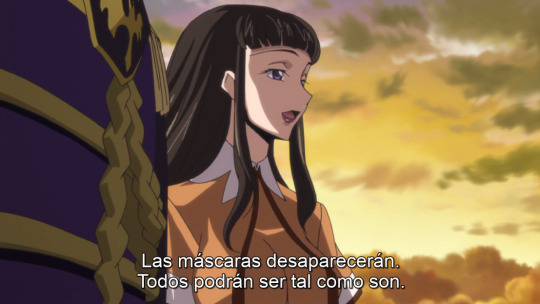
Charles zi Britannia believes that humans are liars. His ideology is based on the fact that the suffering of the world comes from deceptions and, for this reason, the Ragnarök Connection consists of destroying the set of masks that people use in front of others to force the people to be themselves. This isn't a hive mind nor the literal destruction of the world. It's about, in Jungian terms, destroying the Persona archetype (the face we decide to show to others, not the one we truly are). This way people wouldn't have to lie, they could understand each other and conflicts would end. Sounds good, in theory. The problem is that the emperor's plan involves eliminating free will and individuality, which reflects Lelouch's parents' rejection of human nature. Charles' view of humanity is quite simplistic, binary and dismissive. That's why Charles appears painted red and blue on a background of the world in the opening.

Lelouch and Suzaku reject this vision and this plan. Lelouch says that people still lie for good reasons (a purpose) and Suzaku agrees, claiming that they may lie to protect others like Euphemia and Shirley who kept Lelouch's secret. Lelouch understands that masks are necessary and are part of people's identity. He proves it in the last interaction he has with his father. Nunnally's smile is a mask, but that doesn't make it fake. It's her way of accepting her unfortunate fate and being grateful that she is still alive and is with her loved ones. Lelouch is aware of this and accepts her mask.
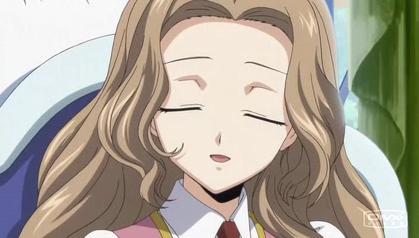
The Ragnarök Connection involves the elimination of the effort that humans must make to learn and empathize with them. Consequently, no new experiences are forged and nothing evolves. And, if nothing changes, life loses total meaning and becomes empty. An empty life is a life without a future or hope or purpose. That's what Lelouch explains to CC and Rolo.

Lelouch tells CC in the seventh episode of the first season: "Until I met you I was dead. An empty corpse existing behind a false guise of life, a life in which I did nothing real. Day to day, I merely went through the emotions of living as if I were a zombie. And I always had the feeling that I was gradually dying. If I’m condemned to go back to that, then I’d rather…"
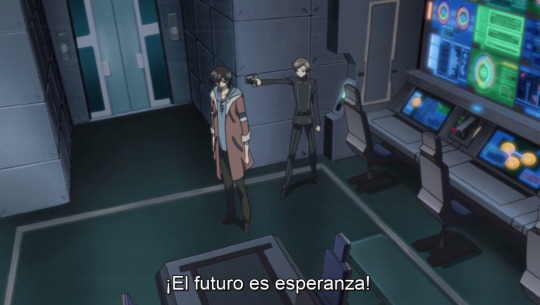
And then he tells Rolo in the fourth episode of R2: Rolo, what is the future? The future is hope. Without hope, your life is on hold, empty, waiting. And you have no hope beyond your mission, Rolo. If you capture C.C., what sort of future will it open for you? Things will just go on as they are, and nothing will change.

Code Geass often uses Lelouch to emphasize the importance of having a purpose in life, even if all the characters demonstrate it in one way or another. It is one of the main themes. For Lelouch, Zero/the Rebellion was always that future. However, in this episode everything is questioned because Lelouch discovers that one of the reasons for his revenge is false because his mother is alive and, furthermore, his rebellion was part of his parents' plan (and CC to a lesser extent). Given this, he reaffirms his individuality and his will.

God/C's world is the human will, which means that it is a collection of the wills of all the people who have ever existed, including Lelouch's. He activated his Geass, not to use it on God, but to influence it. At that moment his will was so powerful that he not only convinced God to stop his parents, he also increased the power of Geass and unlocked it in his other eyeIt's important to note that he made a wish, instead of using Geass, because that differentiates him from his father. While the Emperor intended to bend the C's world to his will, Lelouch doesn't want to do so. He saw himself reflected in his father. They both suffered in the past and wanted to change the world for the better. The thing is Charles was trying to impose peace and although he had good intentions, it was an evil and selfish act. Lelouch realized he was doing the same thing with Zero, technically.

In this way, Lelouch understands that the end doesn't justify the means since his parents sacrificed everything for their ends and, as a result, lost themselves and their motivations. Humanity's sake or, what is the same, "reunion with those from whom we are separated" was the lie that Marianne and Charles used to convince themselves that they were right and were the scapegoat to justify all the sins they committed and allowed to be committed. Lelouch reveals their hypocrisy by pointing out the unconsciousness of their statements. Although Charles and Marianne took Lelouch and Nunnally away to protect them, they didn't seek justice for the crime committed, instead, they became VV's accomplices by using Charles' Geass on Nunnally and then they did not stop the war between Japan and Britannia because they wanted to get the Thought Elevator on Kaminejima Island for their plan. In the same way "Nunnally" was the scapegoat and the lie for Lelouch in his rebellion, however, Lelouch is honest with himself and recognizes that his true motivation was to protect the people he loved. This sincere display is what persuades Suzaku to work with him once again.

One of the main unknowns of the series is "do the ends justify the means?" Suzaku says, "No, the means determine the ends and that's why I will follow the right path by trying to change the unjust regime from the inside while keeping my integrity intact." Lelouch says, "Yes and I can be this manipulative, control-freak leader over these 'pawns' if it means stopping Britannia/saving Nunally." The series answers that neither is completely correct and that both have their advantages and disadvantages. Lelouch and Suzaku end up realizing it here. Suzaku says, "If you want to achieve that end, you must act." And Lelouch says, "Yes, the means to that end requires me to reject something." That is, both must sacrifice something to achieve their goal.

In short, the narrative objective of this scene is to show us that Lelouch and Suzaku understand what humanity wants and establish themselves as defenders of free will, as well as accepting the virtues and defects of the human condition. It's in the nature of men to lie and be confrontational, but they also dream of a tomorrow. Ultimately, the Ragnarök Connection is the final stage for Lelouch and Suzaku's evolution. Thanks to this plan, they perfect their ideals, manage to unite and are able to save the world. It's an important moment that solidifies all the themes of the series and sets the foundation for Lelouch and Suzaku's final plan: Zero Requiem.
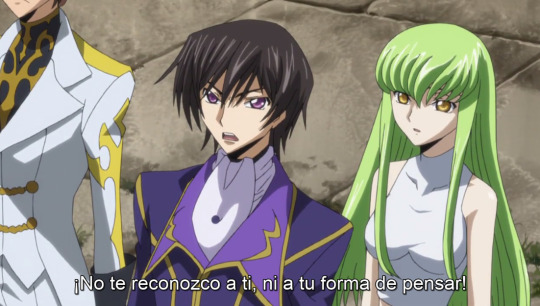
PS: If you think this analysis blew your mind, hope you see it from the perspective of Joseph Campbell's monomyth :P
#code geass#code geass: hangyaku no lelouch#code geass: lelouch of the rebellion#lelouch lamperouge#lelouch vi britannia#lelouch#suzaku kururugi#suzaku#charles zi britannia#marianne vi britannia#nunnally vi britannia#nunnally lamperouge
38 notes
·
View notes
Note
Happy birthday Kallen
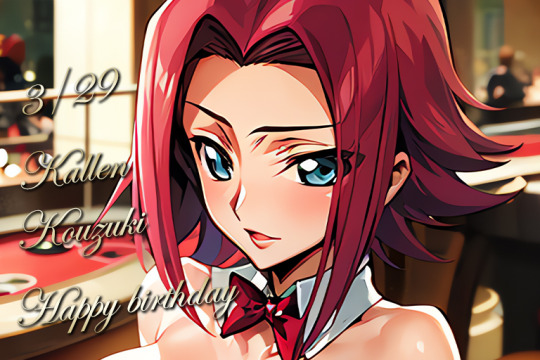
Happy Birthday to the Black Queen!!!!!!!!!!!!
#kallen kozuki#code geass#kallen stadtfeld#kallen#code geass: hangyaku no lelouch#code geass: lelouch of the rebellion
4 notes
·
View notes
Text

Happy birthday to the best Code Geass girl, Kallen "Badass" Kozuki.
At least there was one artist who remembered her birthday.
Source
#kallen kozuki#kallen stadtfeld#code geass#code geass: hangyaku no lelouch#kallen#code geass: lelouch of the rebellion
7 notes
·
View notes
Text
Why is the ending of Code Geass perfect?

The ending of Code Geass is perfect, giving a satisfying end to the narrative arcs of our characters, with special emphasis on Lelouch and Suzaku. Suzaku finds the peace of mind he has been desperately seeking for ten years by bringing peace to the world. By rediscovering the value of the human will, Lelouch renounces control over the world and the will of people by returning them and, at the same time, becomes a hero by giving his life for the greater good and a martyr by dying for his ideals. "Only those who are willing to die should have the power to kill." A foreshadowing that the creators gave us in the first episode.
It's perfect because Lelouch cleanses the world's hatred with his death and founds a new era of peace and prosperity. Not only does he become the scapegoat for the blood shed during the war, he also becomes the messiah he claimed to be like Zero thanks to a lie.
It's perfect because Lelouch redeems himself from the Japanese Administrative Zone massacre that ruined Euphemia's reputation. They both die being what they are not. Euphemia, who was a generous and kind princess who had the best intentions of helping the Japanese people, dies a genocidal liar and manipulator. Lelouch dies as the ruthless and megalomaniacal Demon Emperor who declared war on the world, even though he is actually the hero who saved it. However, Lelouch gladly accepts the role of villain, considering it deserved.
It's perfect because it's a deliciously ironic twist. Suzaku who wanted to change the system from within destroys it as Zero (whom he hated) while Lelouch who wanted to destroy it reformed it as Emperor (whom he hated).
It's perfect because he builds a parallel with episode 4 of the first season creating a rounded closure. Zero appears for the first time in the unjust execution of an innocent man and for the last time he reappears in the unjust execution of some rebels who fought for freedom and justice. Both parades were led by Jeremiah. In this way, Zero becomes a symbol of justice.
It's perfect because Zero's murder of the Demon Emperor becomes an incredible metaphor. Justice destroys hate. Good defeats evil. Hope will always prevail.
It's perfect because the foreshadowing of episode five of the first season is fulfilled: the White Horse (Suzaku) defeats the Black King (Lelouch). In addition, it is in line with the series' stance that Lelouch and Suzaku can succeed in anything if they join forces.
It's perfect because it solves the program's mystery about whether the end justifies the means. The anime answers yes, but you have to pay a price. Lelouch gives his life for the end and Suzaku lives to preserve the means used.
It's perfect because the Zero Requiem constitutes a just punishment for Lelouch and Suzaku. Suzaku, who wanted to die to evade guilt and pain, has to live as a peace mediator assuming the identity of Zero, the figure he opposed. Meanwhile, Lelouch who wanted to live with his loved ones has to die so that they can enjoy the kind world that he dreamed of. Thus both atone for his sins.
It's perfect because the Zero Requiem was the means to achieve peace. Lelouch and Suzaku literally ended all wars for a long time.
The F.L.E.I.J.A., which was the most dangerous weapon ever conceived, was destroyed along with the Damocles.
There will be no more Knightmares. In the final battle, Lelouch blew up the mines on Mount Fuji that accounted for 70% of the world's supply of Sakuradite (the mineral that provided power to the Knightmares) and, at the same time, eliminated the reason for the powers to conquer Japan.
There are no armies anymore. The most powerful army in the Code Geass universe at that time is the Order of the Black Knights and is at the service of the United Nations Federation. The Black Knights can only act together through a vote and, in any case, they will be one of the forces that rebuild the new world. The other largest army was that of Britannia, however, it was mostly annihilated due to the final battle.
There will be no power vacuum. That is the purpose of FNU. Almost all nations are united under the FNU, but still retain their leadership. The FNU is a coalition of nations whose seventeenth provision states that all members must be demilitarized. It is similar to the UN with the difference that it is a more competent organization. By the end of the series, all of the superpowers (the Chinese Federation, the European Union, and Britannia) are members; in such a way that the FNU becomes the governing body of the world.
There are no armies anymore. The most powerful army in the Code Geass universe at that time is the Order of the Black Knights and is at the service of the United Nations Federation. The Black Knights can only act together through a vote and, in any case, they will be one of the forces that rebuild the new world. The other largest army was that of Britannia, however, it was mostly annihilated due to the final battle.
There will be no power vacuum. That is the purpose of FNU. Almost all nations are united under the UFN, but still retain their leadership. The UFN is a coalition of nations whose seventeenth provision states that all members must be demilitarized. It is similar to the UN with the difference that it is a more competent organization. By the end of the series, all of the superpowers (the Chinese Federation, the European Union, and Britannia) are members; in such a way that the UFN becomes the governing body of the world.
No one has the strength to continue fighting due to psychological trauma. The final battle pushed everyone beyond their limits causing great emotional toll. Not to mention that the world was already immersed in an uninterrupted global war for 20 years in a row. The Britannians themselves witnessed such horrors on their territory as Lelouch brought such suffering. People were fed up with pain, deaths and wars. They didn't want to experience the same thing again soon.
Additionally, this war gave rise to a kind of reset in the political landscape. Britannia lost all its power and the Chinese Federation and the European Union would no longer try to fill the void by becoming the new dominant superpower. That is why Lelouch set out to conquer the entire world. Britannia will become a much more democratic government, now that Nunnally is the empress. She will redirect the empire in the right direction. We see that the colonies will be able to become independent, if they wish. For me, the wedding between Ohgi and Villetta ends years of hatred between Britannia and Japan and celebrates a new beginning marked by togetherness, happiness and peace.
Neither Nunnally's government nor the new world will face threats. The nobility was abolished by Lelouch and many of them died when Schneizel fired the F.L.E.I.J.A. towards Pendragon. Any dissidents who might disturb the peace were hunted down by Jeremiah. Schneizel, who was the main danger and the most competent politician, is under Zero's orders, which means that he will no longer act on his ambitions, but will instead lend his skills and knowledge to the rightful ruler of Britannia, Nunnally, the weak link of the royal family becomes the most powerful person in an entire empire.
Of course, this is no guarantee of peace nor is it indicative that it will last forever. There is still resentment and anger. The UFN could be dissolved and all nations could once again turn against each other. Lelouch could have stayed in power to keep the peace. But he respected free will and believed that people were in the constant search for happiness, so Lelouch gave the world the opportunity. According to Kallen in the epilogue, all nations are pooling their efforts to address other problems such as hunger and poverty, proving that Lelouch was right about human nature. In the end, peace is a decision that the world makes. A peace created by the system and not imposed from outside (just as Suzaku wanted).
In short, the ending is perfect because the climax coincides with the closure of the story. That is, all problems are solved with a single (and very powerful) scene. It's a difficult feat to achieve in narrative. And yet, the creators did it.
#code geass: lelouch of the rebellion#code geass#code geass: hangyaku no lelouch#lelouch lamperouge#lelouch vi britannia#lelouch#suzaku kururugi
21 notes
·
View notes
Text
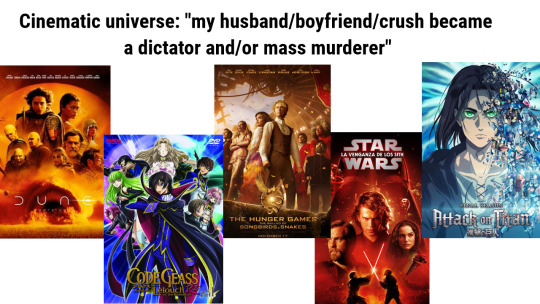
In the case of Code Geass, Lelouch's love life is more ambiguous, but having seen the secondary material it is safe to say that Shirley and Kallen are his love interests and, technically, Kallen was the only one who got to see Lelouch become a bloodthirsty dictator.
I don't have to explain the rest: Chani and Paul, Snow and Lucy, Anakin and Padme, Eren and Mikasa.
#code geass: lelouch of the rebellion#code geass#code geass: hangyaku no lelouch#lelouch lamperouge#lelouch vi britannia#lelouch#dune part two#dune part 2#paul atreides#star wars#star wars: revenge of the sith#anakin skywalker#attack on titan#shingeki no kyojin#eren jaeger#the hunger games#hunger games ballad of songbirds and snakes#president snow
58 notes
·
View notes
Text
What was C.C.'s wish? And what kind of relationship does C.C. with Lelouch?

Today I'm going to get into swampy water because for the first time on this page I'm going to address CC's wish and I'm going to take her relationship with Lelouch very seriously. Lelouch and C.C.'s relationship is one of the most misunderstood in the series. Honestly, I think very few fans understand all the relationships in Code Geass. What sets Lelouch and CC apart is that their relationship is highly idealized for the wrong reasons. In other words, fans love the idea they have of Lelouch and CC's relationship, rather than what it is. This time I'm not going to talk about the headcanons of the shippers, I'm going to talk about the canon and in order not to go on too long, I'll limit myself to talking about the core of the relationship and to do so, I have to explain what C.C.'s wish is.
So what was C.C.'s true desire? She longed for love in its purest form. An unconditional love because deep down she wanted to be recognized as human and that is the cornerstone on which the relationship between Lelouch and C.C. is built. C.C.'s past shows us that she was dehumanized at an early age: by her condition as a slave that defined her as an inferior being before her masters, by the people on whom she used her Geass who reduced her to an object of desire, by the nun who used her as a tool for her own purposes and for the code that turned her into the Immortal Witch we know. This human degradation in combination with deep emotional deficiencies from childhood and the traumatic experiences we saw in episode 15 of R1 led to the development of low self-esteem and the appearance of suicidal tendencies.
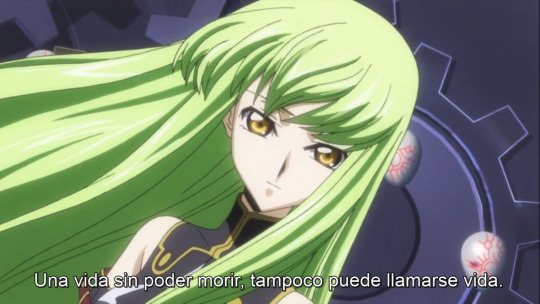
C.C.'s death wish, in fact, is a manifestation that C.C. has no self-love. I have read some opinions that suggest that C.C. is self-deprecating, but I disagreed with them because C.C. didn't love herself long before she met the nun and beyond feeling guilty for giving Geass to Lelouch and the children of the Geass Cult, she never reproaches herself nor do we see her devalue herself as they have made other characters with themselves (Suzaku, Nina, Euphemia…). So I don't think she had an opinion of herself until she assumed her condition as selfish Immortal Witch (which is a stage in her life when she had morality removed from her). And you can't hate yourself if you didn't love yourself at some point.
It isn't so simple to see that C.C. has low self-esteem since her arc has a philosophical approach and in that sense it differs from Rolo's arc, which also starts from the theme of "love" and the thesis that "love humanizes you"; but the message reaches us much more directly because it doesn't have a sieve. C.C. justifies her suicidal plan by appealing to passive nihilism. "Life is absurd and has no meaning because there is no love, there is pain and if life has no end it means that the pain is eternal." Faced with this terrible conclusion, C.C. thinks it is better to take her own life. But death doesn't represent a solution. In reality, just as it is for Suzaku, death is an escape from the suffering that C.C. feels and, at the same time, it is a way of becoming aware of her humanity by recognizing the existence of death; because, as Martin's character said in the anime Monster, "nobody really wants to die."

This is one reason why C.C. refused to give her code to Charles at the last minute and didn't force Mao and Lelouch to take her code, preferring to abandon them. The other reason is that C.C. isn't so petty as to condemn them against their will to an immortal life since she felt affection for them and in turn, Lelouch and Mao wouldn't be able to take the code, knowing that C.C. wanted to end her life. The problem is that C.C. doesn't know what she wants and she has no idea what love is. She had no parents or friends. She only knew conceptually what love is, but Geass offered her a distorted vision of her wish and, as she herself said, she forgot what it is (and that's why it's ridiculous when CluClu fanboys deny C.C.'s words about her feelings for Lelouch, when she tells Kallen that she doesn't know if she loves him in episode 24 of R2, and insist on emphatically stating that C.C. was in love with Lelouch). Furthermore, she was so immersed in her own suffering that she couldn't realize that she already had what she always wanted.
Ironically, C.C. decided to cut connections for fear of suffering again and being despised. People tend to project themselves onto others and those who suffer from low self-esteem think that no one can love them because if they themselves can't do it, neither can others. Hence she distances herself emotionally from her contractors, how? Through contracts (it is C.C.'s favorite barrier). By defining her relationships strictly in contractual terms, she already creates a distance. In psychology, there is a term for it and it is "attachment." Broadly speaking, the relationship that an individual and his or her caregivers had in childhood will determine their relationships in adulthood. Clearly C.C. manifests an avoidant attachment. "Avoidant attachment is characterized by the tendency to avoid emotional intimacy and dependency in a relationship. People with this type of attachment tend to maintain emotional distance and may be reluctant to express their feelings. This may be due to past experiences of rejection , abandonment or emotional wounds that have led to the creation of an emotional shell as a protection mechanism."

Initially, Lelouch also dehumanized C.C. considering her an Immortal Witch. Like Clovis and Code R, he intended to study herIt is not until after he hears CC call her her own name in her dreams in the cave in Narita that he begins to treat her like a human. That moment in the cave is important for both of them. On Lelouch's side, because C.C. enter the circle of his loved ones. And, on C.C.'s side, because Lelouch thus became the first person to treat her as a human. So the first emotional bonds are forged that become stronger as time goes by and thus we arrive at the favorite episode of CluClu fans: "C's World", from the second season.
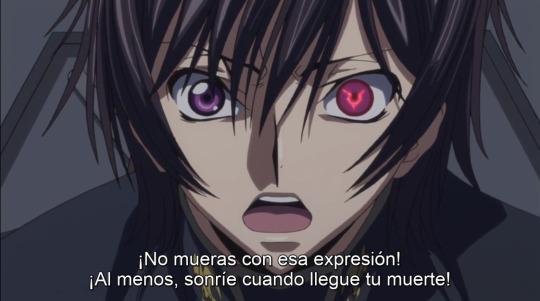
Episode 15 of R2 is a sample that Lelouch really is a good person: even though he just discovered that CC used him to transfer a curse to him and that she was dishonest with him about her relationship with his father, Lelouch shows compassion and empathy for C.C. because he wants his loved ones to be happy (and he has seen C.C.'s unfortunate past recently). Therefore, he asks C.C. that she dies with a smile, which, at the same time, is a tight synthesis of Agathonism, which is the philosophy that refutes passive nihilism and whose maximum postulate is "enjoy life and help live a pleasant life." This noble request constitutes a turning point in the relationship between them since in this way the contract between partners of Lelouch and C.C. becomes a promise between two humans (words from the official Code Geass guide, not mine). Why? Because in that moment when Lelouch promises to make her smile, C.C. see his love. The Greeks divided love into several types and one of them is agape. Agape is the highest form of love and charity and essentially refers to unconditional love (in fact, Christians later adopted the term to precisely describe the love that God feels toward humanity). This is the love that Lelouch professes for C.C.
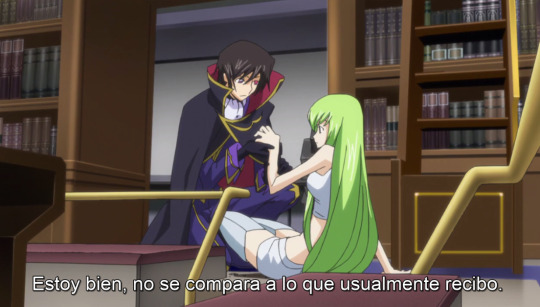
The following episodes only emphasize what it already demonstrated before. Even when C.C. lost her memory, even when her association with his enemy and her participation in the Connection to Ragnarök came to light, even when she withheld pertinent information from him, even when she gave him the Geass that would change his life forever, even when Lelouch had to sacrifice himself to atone for his sins and bring peace to the world, Lelouch never held a grudge against C.C. On the contrary, he always treated her with kindness and offered her empathy and gratitude. In the end, Lelouch managed to save C.C. of her self-destruction by accepting her and recognizing her as his equal. This is what restores C.C.'s will to live and gives her the motivation she needs to find love and acceptance for herself.
In addition to the fact that Zero Requiem gives a new perspective to C.C. since not only does she witness Lelouch's love for humanity, she also sees Lelouch's persistence despite difficulties. And that, ladies and gentlemen, is being human. She understands then what it is to be human and what life means. It's about survival. And, similarly, C.C. understand what love is. It's about sacrifice. Thanks to Zero Requiem and Lelouch, C.C. finds meaning in life and is more than ready to embrace it and love. Thus Lelouch honored his promise to C.C. and it only remains for her to live and be happy as he desired.

Indeed, Larry. C.C. has a love story, not with Lelouch, but with herself and interpreting Lelouch and C.C.'s relationship. as a romantic relationship would strip away the powerful character of C.C.'s arc. and it would take away from the uniqueness of her relationship with Lelouch (which I confess I didn't find at all special at first, compared to Lelouch's other relationships that featured much more complex, nuanced, rich, and interesting dynamics and developments). Besides that's the point of their relationship. When C.C. tells Lelouch in episode 24 of R2 that he is not like any man she has ever known, she meant that she had met contractors and people who had hated and loved her, in what sense? Exactly like Mao. That's why the official Code Geass guide explicitly notes that Lelouch never saw her as his lover or mother. Therefore, if he had expressed romantic love or erotic love or filial love (storge is the Greek term), Lelouch wouldn't be different from Mao. He loved her in a way no one else had. And that is agape love. The one who only pursues the well-being of the other, putting it before his own, without expecting anything in return, even if that love isn't reciprocated, which has nothing to do with romantic love or sexual desire. In agape love there is no jealousy, envy, distrust, betrayal or anger towards the other for their failures or actions, because, simply, you love the person, accepting them as they are. That's the relationship Lelouch and C.C. have.
PS: enough of believing that self-esteem problems are solved thanks to romantic love, Julia. That only happens in novels of dubious quality.
#code geass#code geass: lelouch of the rebellion#lelouch lamperouge#lelouch vi britannia#lelouch#c.c. (code geass)#cluclu#lelouch x c.c.
31 notes
·
View notes
Text
Top 10 of the best episodes of the first season of Code Geass, according to me
Since I'm re-watching Code Geass, I decided I'd make a top 10 of the best episodes. Forgive me if I'm not going to explain the reasons for each one, but it would be quite long. I just finished watching episode 15 of R2 and I will do a top 10 of the best episodes of the second season, I thought it was better that I upload the top 10 best episodes of the first season of Code Geass that I already published on my page. That being said, which episodes make up the top?
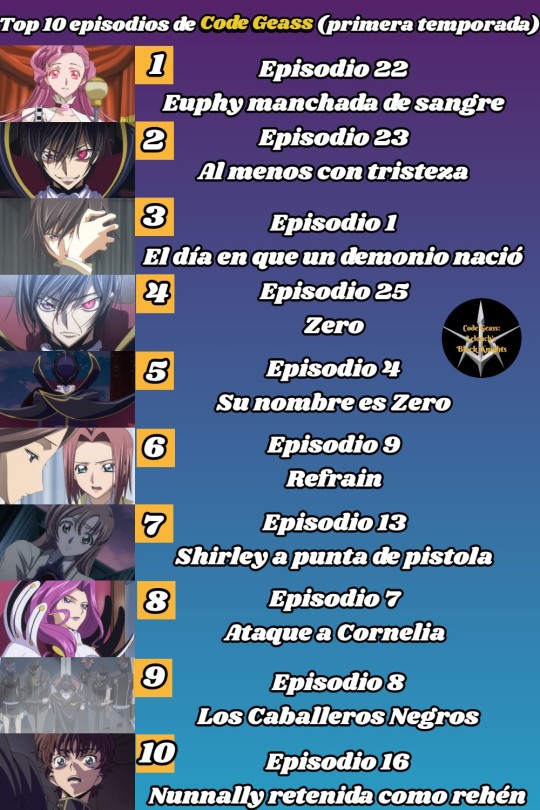
Episode 22: Bloodstained Euphie
Episode 23: At Least with Sorrow
Episode 1: The Day a New Demon was Born
Episode 25: Zero
Episode 4: His name is Zero
Episode 9: Refrain (underrated episode)
Episode 13: Shirley at Gunpoint.
Episode 8: Attack Cornelia
Episode 9: Black Knights
Episode 16: Nunnally held hostage
Honorable mentions:
Episode 2: The White Knight Awakens
Episode 3: The False Classmate
Episode 19: Island of the Gods
What is your top?
4 notes
·
View notes
Text
Why was Lelouch's manipulation effective on Rolo?

One of this year's "resolutions" I set for my Code Geass page was that I was going to give more space to Rolo. Rolo is my favorite secondary character in Code Geass, even above Shirley and Euphemia, but I haven't talked about him much and I wanted to rectify that. This Monday I published a survey to my followers in which I invited them to vote for the analysis of Rolo that they were most interested in me doing. There were three options:
⭐Why was Lelouch's manipulation effective on Rolo?
⭐Why did Rolo kill Shirley?
⭐The parallels between V.V. and Rolo
There was a close competition between the second and the winner, which is what you can read in the title of the publication. Don't worry if you didn't win the analysis you wanted because those analyzes will come gradually. Furthermore, there is an important point in common that we must take into consideration in the two most requested analyzes: Rolo's background.
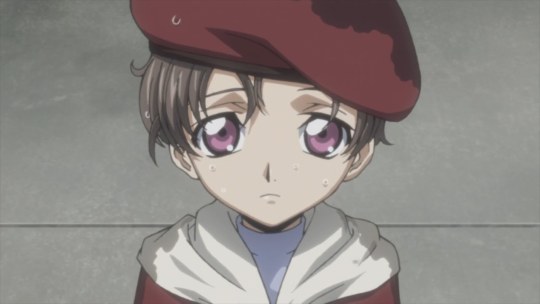
So who the fuck is Rolo? He is a trained assassin who works for the O.S.I. which, in turn, is in connection with the Geass Order and both organizations answer to the Emperor and V.V. (the devilish brothers). Episode 3 of R2 gives us an overview of him and how he normally acts if Lelouch is not with him (yes, being Lelouch's shy and devoted brother is Rolo's mask, but, as a professor told me in a class a while ago, masks are not necessarily fake and this mask is actually a side of him that not even Rolo himself knew). At the same time, episode 3 drops some seeds (problems) that will bloom over the course of the season:
His extreme loneliness: Rivalz casually comments that Rolo does not talk to anyone at school and, additionally, we see that it is difficult for him to work as a team (there is a scene with Villetta in which the members of the O.S.I. complain to her because Rolo has killed some of them for stupid reasons). All of this results in his poor social skills and him distrusting everyone (and himself). I won't use the enneagram right now, but Rolo is undoubtedly a 6w5 one-to-one subtype and with that information, a connoisseur of this tool can get a general idea of the motivations behind Rolo's strange behaviors.
His budding interest and need to understand the meanings of "having a family" and "birthdays," which tie into the heart-shaped locket that Lelouch gave him (and for which he killed a member of the O.S.I. just for touching it). It isn't until we reach episode 4 of R2 that we are introduced to Rolo's past that we understand this curiosity he has.
Rolo and Mao are similar in several ways. They are both orphans, given a Geass that was too powerful for them at a very young age, and are amoral as a result of their particular lives. Specifically, Rolo wasn't raised as a human, but rather he was trained from birth to be a killing machine. Therefore, he has no social skills or moral codes, he has no notion of what is right and wrong, he has never had a family, he doesn't know how to make friends and, of course, he has no idea what love is nor does he know how to love (this last part is important because that's what his narrative arc is about, by the way).
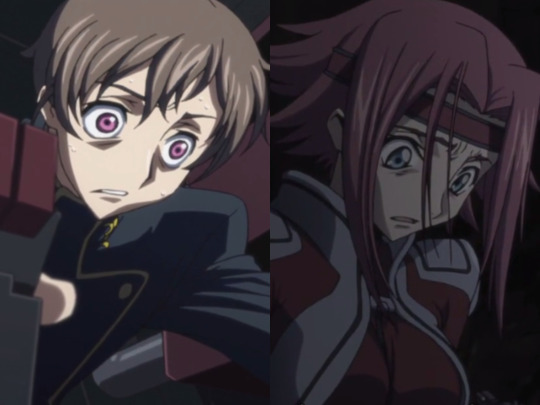
Rolo was taught to follow orders, solve problems and repress his social, emotional and affective needs. Rolo has convinced himself that it was okay for him to live as he has been because he has focused on the present by completing the missions assigned to him. It's Lelouch who motivates him to think about the future and find meaning in life: "Rolo, what is the future? The future is hope. Without hope, your life is empty. And you have no hope beyond your mission. Rolo, if you capture C.C., what kind of future will it open up for you? Things will remain as they are and nothing will change." It's more or less the same situation that Kallen goes through in the first season since she also has to define her objectives and motivations and, in fact, the mental breakdown that Rolo suffers is similar to the one that Kallen had on Kaminejima Island because both they see how the lie that they believed to be true crumbles before their eyes. In Rolo's case, after all, Lelouch does care more than the mission (or, in other words, that his emotional ties are real).
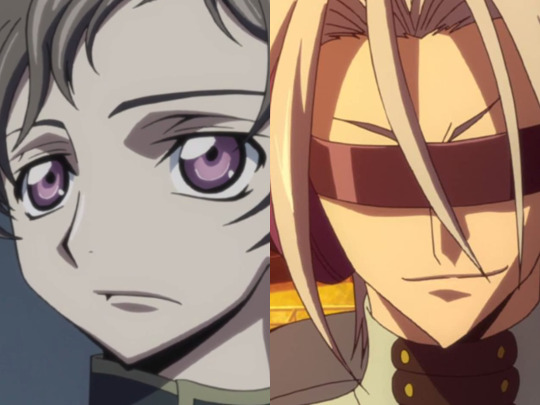
The difference between the two is that Rolo isn't mentally healthy and here we find other parallels with Mao. Both are, first and foremost, victims of child abuse by people who should have protected them, but decided to use them for their benefit (C.C. in the case of Mao and V.V. in the case of Rolo) and both are hungry for love for their loved ones (C.C. and Lelouch respectively). I would add that they are also children who didn't grow up well. That's why Rolo's locket is shaped like a heart: it symbolizes the love (of Lelouch) that Rolo desperately wants.
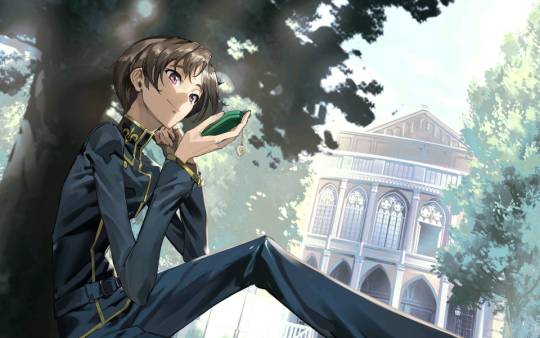
Even if Rolo sees himself as a weapon because he has been dehumanized by the Geass Order, he is human and, like every person, wants to be loved (C.C. literally wants to die because she believes there is no love in her life). This need combined with Lelouch's search for meaning based on his agenda (being his little brother) leads Rolo to turn such meaning into his reason for living. "I made you a promise. I promised you a new future. Your future is with me" (or, what is the same, "your future is me").
Of course, there is a difference between Mao and Rolo (which is the same difference between V.V. and him) that I won't reveal now. I will say that, although the relationship between Rolo and Lelouch will evolve into a dependency on the boy's part that will aggravate his mental state, it constitutes a turning point in his narrative arc since, in addition to giving him a goal and motivation, this is the first time that Rolo thinks about himself and what he wants for himself, which is good for Rolo since he begins to value his life and Lelouch won't face consequences for manipulating, lying and using an amoral young murderer with strong emotional deficiencies who has been indoctrinated by a malevolent organization, right? RIGHT?!

No, forget it. Shirley dies.
But I'll reserve that for the next analysis. Honestly, I'm glad this analysis came out first because when I release Shirley's I'll be more direct in touching on Rolo's background and focus on Rolo's fears and feelings and explaining something nonsense called "anxious attachment." React and share, if you want to see it soon, as well as other analyzes of Rolo (I need to analyze his death scene because it is heartbreakingly beautiful and meaningful, even more so with the music).
Thanks for reading me.
#code geass: lelouch of the rebellion#code geass#code geass: hangyaku no lelouch#lelouch lamperouge#lelouch vi britannia#lelouch#rolo lamperouge#mao (code geass)#kallen kozuki
29 notes
·
View notes
Text
A year ago I wrote this headcanon which I actually think is canon since CC says that VV really loved Marianne. At the time, almost no one read it. Now that I have more followers, I would like to reblog it. Let's see if it has more diffusion.

The real reason why V.V. killed Marianne

We all know who V.V. We all know that he killed Marianne. We were told that he did it because he considered her a distraction in the plans and an interference in the nexus between Charles and V.V. At first glance, V.V. killed her because he was jealous that Charles spent more quality time with her than with him… But what if I told you that explanation is an attempt by V.V. for rationalizing his actions? What if I told you that wasn’t the real reason? What would you think, if I told you that V.V. he actually killed her because he was in love with Marianne? Perhaps you might think I’ve lost a screw, however, I’m going to show you that this premise makes much more sense and that it invests V.V. of a depth that surely you didn’t think it had.
To begin with, where did the idea come from that V.V. was in love with Marianne? Well, I base it on the last conversation that C.C. had with V.V. in episode 15 of R2. While V.V. bleeds to death from his battle wounds, C.C. asks several questions in an effort to understand why Charles returned mortality to the brother he loved and admired so much and blurts out: “V2, you loved Marianne, do you?” (this is the direct translation of the dubbing in English). That’s where the conversation ends and the idea isn’t given more thought, but I think they told us enough for the viewers to connect the dots. Also remember that the superpower of C.C. is seeing through people (not regeneration or teleporting or inducing hallucinations, that takes a backseat).
This contradiction leads me to think that V.V. was an enneatype 1 just like Suzaku and this enneatype has a quite particular defense mechanism called Reactive Formation (a term coined by psychoanalysis and that I tried to explain through Suzaku, but that will be on another occasion). Basically, the Ones try to reduce or eliminate the anxiety and anger caused by their own thoughts, feelings or behaviors that they consider unacceptable by responding in a way exactly opposite to their true feelings and thoughts (hence the great hypocrisy of the Ones).
That V.V. loved Marianne, assumes, in turn, that he was jealous of Charles and most likely hated him. But deep inside, these two feelings were irreconcilable since Charles was his brother and, therefore, he should love him (it is correct, in V.V.’s opinion) and Marianne was the beloved of his brother, neither more nor less. If he was to hate anyone, it had to be Marianne because she had set him apart from his dear brother.
The difference between Suzaku and V.V. lies in the subtype or instinct. While Suzaku is self-preservation because he is obsessed with correcting himself, V.V. he is one-to-one because he wants to correct the world through the Ragnarök Connection.
Enneatype one villains are usually common in fiction. They give a lot of play. Light Yagami is a Enneatype 1 One-to-One villain and you know who is too? Judge Claude Frollo, the antagonist of The Hunchback of Notre Dame, the Disney movie, I don’t know if you remember, but he has a well-known little song in which he expresses his lust and his desire to possess Esmeralda, a gypsy, which implies a problem for him because it is a race and a social class that he is determined to exterminate. If you have this song in mind, you will remember that the end of the song literally says: “ella she will be mine or she will burn” (traslation: if she is not mine, she will not be anyone’s). Let’s say V.V. made the same reasoning as Frollo here.
“Since the beginning of time, the woman has always been the one to lead the man astray.” V.V. says that to Marianne talking about Charles shortly before he kills her, but what if he really was talking about himself? V.V. wouldn’t want to take responsibility for his feelings. He prefers to blame Marianne for corrupting her heart with lust and love.
It is curious because enneatype 1 disintegrates towards enneatype 4 in its negative sense, that is, in their moments of stress, the Ones adopt the worst traits of the Fours and the Passion of the Four (understood by Passion as reactions to the hurtful messages of our childhood; they are negative emotions that take control of us) is Envy and V.V. would be very envious of Charles and his happiness.
The series has communicated to us that the Geass, in one way or another, condemns people to loneliness. We have seen how this fucks up the lives of Geass users: Lelouch, Charles, Rolo, C.C., Mao. Perhaps you have let V.V. go unnoticed because it’s too obvious: V.V. is a 63-year-old adult man trapped in the body of a 10-year-old boy. He was unable to grow and develop fully and have a normal life. Not even Charles’ children are aware that they have an uncle! V.V. doesn’t exist in public life. He is doomed to see Charles enjoy everything he can’t from a distance and surely Marianne was the only woman (excluding C.C.) he ever interacted with (more than likely feelings could blossom in his heart for her).
Have you ever been so close to something and no matter how hard you stretch your arm, you can’t grab it? That’s how V.V. felt, he never had a chance with Marianne. It was impossible that one day she would notice him. Needless to say, it must have been very hard for V.V. seeing the woman he loved with another man who was his brother and their children.
It’s possible that V.V. may have experienced some similar feelings for Lelouch and Nunnally as Severus Snape for Harry Potter, although rather than seeing Lelouch and Nunnally as an opportunity to redeem himself, it is possible that he saw them as an extension of Marianne in the sense that she it could be, for V.V., a walking and hateful reminder of all that life/the Geass had taken from her.
Intense.
In my opinion, this interpretation provides nuances and depth to V.V. and turns him into his own character. He is no longer a Deus Ex Machina with legs or a cheap copy of Rolo. The icing on the cake is that this interpretation connects well with the negative aspect of the Geass. I think I read this in some comment and after absorbing it, I can’t stop looking at V.V. in the same way. What’s more, now it seems embarrassing to me not to have noticed it before. Perhaps you had already noticed. Tell me. I will be reading them.
Let’s see how much they buy my analysis.
(This is a direct translation of an analysis that I uploaded today to my Code Geass page in Spanish. I translated it into English here for wider reach, so if you’re having trouble with the translation you know why. The image says: the unfortunate love triangle, which nobody talks about).
#code geass: hangyaku no lelouch#code geass#code geass: lelouch of the rebellion#v.v. (code geass)#charles zi britannia#marianne vi britannia#headcanon
6 notes
·
View notes
Text
Lelouch vi Britannia, the Prometheus of Japanese animation
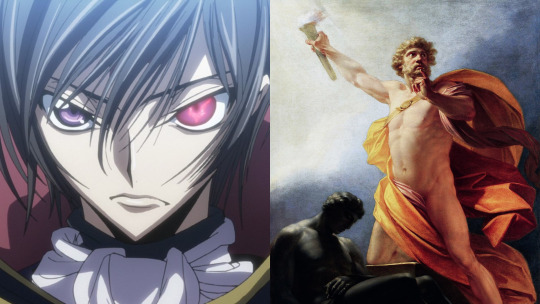
Today I want to upload an analysis about Lelouch that I had saved for a long time. This analysis is very special to me because it was a university essay (I wrote it in 2021 and it was a way to reconnect with this series since I didn't want to know anything about it after I was destroyed by the canon ending, I was disappointed by the alternative universe and the fandom disgusted me). I got a good grade, but it wasn't the best and it made me very sad because I worked hard and wrote that essay with a lot of love.
Anyway, the professor was terrible and I hated with every cell of my being every one of her classes and her way of teaching (some people shouldn't be teachers), so I don't care that I gave her a spoiler for one of the best endings from the television (maybe some of you will say that she didn't give me a higher grade because of the prejudice against Japanese animation and that could be, although it would be ironic because she said that it was allowed to choose anime characters as long as we explained to her everything with luxury detail and that's what I did.)
The essay exercise consisted of choosing a fictional character and explaining what archetype it was based on. What is an archetype? They are expressions of the collective unconscious or psychic elaborations that are part of the universal common language and that help in the composition of stories. In Jungian terms, Lelouch is a "Trickster" that mythologist Campbell defines as characters who violate the principles of the natural order, destroy life as we know it and restore it as a new dynamic. Lelouch also fits the Shadow archetype with respect to Suzaku, who is the Hero archetype, since Lelouch, in a way, represents everything that he represses about himself. I decided to analyze Lelouch starting from the figure of Prometheus because I felt that I was going to do a more complete analysis within the limit of extension that I had. If you notice that I'm being a little too explanatory in some parts or I don't stop to delve into others, keep in mind that it is because the essay was directed to someone who has never seen Code Geass in her life. With that said, here we go.
"It was 2006 when one of the most important Japanese animated series in the world premiered: Code Geass: Lelouch of the Rebellion. The story is about Lelouch vi Britannia, the seventeenth prince of the Holy Empire of Britannia, who at his young age was sent to Japan as a political hostage with his sister after rebuking his father, the Emperor, for failing to protect his family during an attack that left his mother dead and his sister paralyzed and blind. The series begins ten years after the tragedy when Britannia has already colonized three quarters of the world, including Japan, which is renamed Area 11. It's then that Lelouch obtains Geass, a mystical power that will allow him to dominate the will of the others, and with it he will adopt the alter ego of Zero, a masked vigilante, and will lead a rebellion in order to find answers for the murder of his mother and to give a kind world to his sister - and, in the process, destroy the empire who repudiated him. Stories about rebellions have been told many times. In his book The Rebel Man, Albert Camus observed that man rises up against the order that oppresses him when the situation has lasted so long that it is unsustainable. But the feeling of insurrection, although it is an awareness, arises from the archetypes that serve as a guide in times of crisis for societies and establish patterns for the characters in the stories we like. That being so, what archetype do we identify in Lelouch? The one from Prometheus. In this work, we will unravel Lelouch through this archetype.
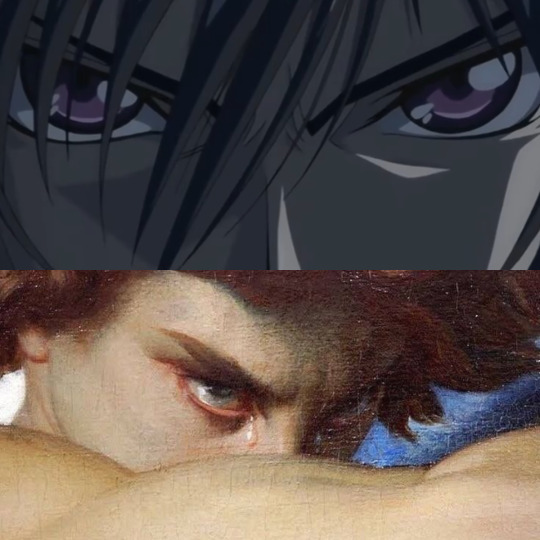
The myth of Prometheus is of vast symbolic richness. Hence it lends itself to inexhaustible reinterpretations and is one of the most reworked myths. In Prometheus: myth and tragedy, Carlos García Gual traces the different materializations of Prometheus throughout the ages and declares: "all these Prometheans (...) are united by the same resistance, the same insurrection, the same voluntary suffering" (p .194). So Prometheus transcends as a benevolent rogue who disobeys the commands of Zeus in favor of humanity, emphasizing values of rebellion and progress. However, this is far from Lelouch because, while it is true that Area 11 is under the yoke of Britannia, it is not driven by a genuine desire to free the Elevens (the colonists of Area 11), but by revenge and resentment, and it disguises its selfish reasons with intentions altruistic. He does, at least initially, as, at a turning point in the second season, Lelouch realizes that his struggle extends beyond him and his sister. He also fights for the people he loves and the humanity. In this sense, we can say that Lelouch embodies the negative expression of the archetype and this, in turn, makes him similar to another mythical figure: Lucifer. Like Lelouch, Lucifer questions the supreme power of God and incites the angels to oppose him by masking his personal motivations. When the rebellion fails, he hatches a plan to corrupt man in order to get revenge on God. And the similarities don't end there. Lelouch and Lucifer were exiled and as a result they harbor a deep hatred against their creators - in God, in the Emperor of Britannia and even in Zeus we can identify the archetype of the Father. Lelouch and Satan, additionally, are manipulators and liars. Both resort to rhetoric to get what they want from others and, like evil itself, they are seductive and charismatic. We see how Lucifer deceived Eve and how Lelouch pretends to love Rolo as his brother when he is really using him. To make it more evident, in the final stretch of the series, the other characters distinguish Lelouch as "Demon Emperor" in allusion to his evil. It may seem like we are getting off topic; however, the opposite is true. Prometheus and Lucifer are more similar than it seems at first glance. In fact, Milton's Satan drinks from Prometheus and, apart from that, emerged in the Baroque, a movement that preceded Romanticism, which had an intense affinity with Prometheus. Thus, Satan, Lelouch and Prometheus have their origin in the fact that they were part of the order that they challenge and stand out for their powerful nature. Lucifer was an angel at the service of God; Prometheus was a titan with the prophetic gift who helped Zeus during the titanomachy and Lelouch was the son of the Emperor (plus he possesses mystical power and genius intellect). And, above all, all three are essentially characterized by their cunning.
Outside of his love for the human race, Prometheus is still a scoundrel who used tricks to get his way. Hesiod presents him as a challenger to the omnipotence and omnipresence of Zeus in the Theogony, highlighting his negative traits (because his attitude is contrary to the purposes of Zeus, who wants everything good). The myth of Mecona demonstrates this since Prometheus mocked the father of the gods with malicious art with the distribution of the parts of the sacrificed bull, knowing that he would choose the most appetizing one. Here Prometheus is transgressing the sacrifice between men and gods [here I open a parenthesis to tell my readers who aren't familiar with Greek mythology nor are they mythologists that the myth of Macona is the explanation and meaning that the Greeks gave to their sacrificial rituals and if we analyze it carefully, you will see that the Prometheus' trick benefited humanity since it was established that humans could eat the meat and that the burned bones would be the sacrifice for the gods; if it had been the other way around, human would have chewed the bones as if they were dogs and the gods would have eaten the meat because that was what Zeus, who "knows what is good for man", wanted (f*ck you Zeus).] Lelouch does something similar in the eighth episode of the second season. The vicereine of Area 11 decides to restore the Administrative Zone of Japan, which is a conceptual State created with the aim of returning the rights and privileges to the Elevens that were previously denied to them as colonial powers, and establishes a dialogue with Zero (Lelouch). He accepts, on behalf of the Elevens, on the condition that "Zero" be exiled and, in this way, they close the agreement. On the day of the inauguration, Lelouch, his army and the Elevens attend the ceremony dressed as Zero, forcing Britannia to let all the Zeros go and, in turn, preventing the reduction of support for his rebel group and the Elevens are subordinated to a puppet State. This situation is one of many in which Lelouch uses his cunning to benefit the people (and his own plans).
Prometheus' other trick is the theft of fire. Against the will of Zeus, Prometheus steals the fire from the gods and gives it to men. The myth of the creation of humanity tells that Prometheus decided to give man fire to elevate him to a higher category than the animal and guarantee his survival; but what does fire symbolize in this context? David Fontana answers, in The Secret Language of Symbols, that it is "a symbol of the wisdom that differentiates men from gods" (p.111). Fire is the light that allows us to see through the shadows. It's the knowledge that constitutes the central axis in the progress of civilizations. And isn't knowledge what Lucifer offers to man in Genesis? Just in case you have any doubts, the etymology reveals it: Lucifer comes from Latin and is made up of lux (light) and ferre (carry). Therefore, Lucifer means "bringer of light." Several literary critics will compare Lucifer to Prometheus, among other aspects, for this. Paolo Astorgo, in his essay "The myth of Prometheus and human knowledge", points out in relation to this: "[Prometheus] favors humanity by providing it with certain means by which it not only systematizes its activities more quickly (... ), but it creates the first ideas about technology” (para. 5). With fire, man can create weapons and instruments. For this reason, Astorgo talks about technological advancement and this brings us back to Code Geass. In the preamble to the first episode they explain to us that Britannia conquered Japan (and many other nations) because they had "Knightmares" at their disposal, which are large armed robots. No matter how hard the Japanese tried to get their land back, they were always outmatched. It's Lelouch who obtains several Knightmares and bestows them on the rebels. Thanks to its resources and tricks, the group establishes itself as a kind of organization that soon gains the sympathy of the people and the patronage of the Japanese plutocrats. Under Lelouch's leadership, the organization grows exponentially, becoming an army that rivals that of Britannia and, consequently, is capable of fighting for the freedom of Japan. Astorgo shows that men find themselves in the need to depend on the divinities because they have fire that they also use to subdue them. By giving them fire, Prometheus not only makes man rebel against the oppressive divinities, he also provides him with tools to free himself from them. Likewise, Lelouch provides the Elevens with the same power with which Britannia bends them to become independent. And, to this, Astorgo adds: "This almost dialectical relationship God-Humanity, revolves in the myth as a constant closely linked to the fact of necessity and rebellion, which is what regularizes all the acts of “deception” that Prometheus uses before Zeus. , to steal power, with the sole objective of providing freedom to humanity" (para. 13). Here one of the values that Prometheus represents comes into play: freedom.
Satan, Prometheus and Lelouch affirm themselves as rebels against the tyranny of the powerful, but humanity suffers the consequences. Adam and Eve are expelled from Paradise; Zeus takes fire from man and grants him a new evil, and in his obsession with revenge, Lelouch unintentionally drags down innocent lives and his loved ones. But while Lucifer is apathetic; Lelouch and Prometheus suffer. In his work "Prometheus: Human Existence in Greek Interpretation", Karl Kerényi says that the nature of this archetype pushes the Prometheans to think deviously, which brings misfortune for humanity and for themselves. He alleges: “in their devious (ankyios) way of thinking (…) they are caught in their own web (ankyie): (…). And all kinds of devious paths correspond to it, from lies and deceptions to the most ingenious inventions, whose precondition, however, is always representative of a lack in the way of existing of the clever" (p.45). This is the imperfection that Kerényi reiterates throughout the text. Even though they are "titanic", Lelouch and Prometheus are imperfect because they suffer and that pain humanizes them. From there, Kerényi stipulates that suffering is part of the human condition. Lelouch, in particular, is aware of the damage that his actions have on those close to him and the innocent and lives with remorse. An example is episode thirteen of the first season: the father of one of his love interests dies due to a landslide that he causes in a confrontation with Britannia. Lelouch never forgave himself. Of course, if there was an event whose guilt always tormented him, it was the massacre of the Administrative Zone of Japan, of which he was the indirect author. The sum of the tragedies in his life leads Lelouch towards the positive side of him as an archetype and, eventually, makes him make the decision to pay for his sins, but not before leaving behind him a kind world as he had proposed.
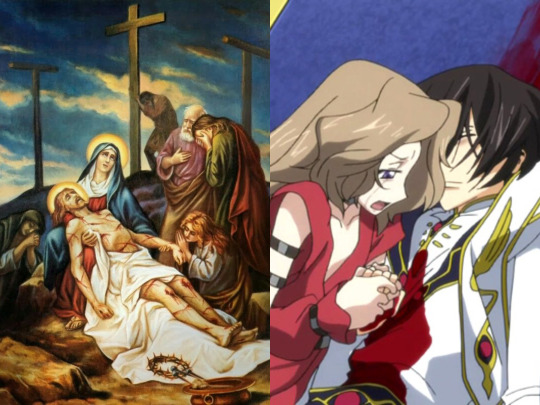
Both Prometheus and Lelouch end up succumbing to divine justice for their misdeeds. Prometheus is tied with strong chains to a rock where an eagle devours his liver and remains there for a long time until Heracles appears and shoots the animal. Lelouch's punishment, on the other hand, takes the form of the Zero Requiem; which is a plan that he develops with Suzaku, his best friend, with the aim of ending all wars and ushering in an era of peace and, in unison, answering for their crimes. After killing the Emperor and usurping the throne, Lelouch quells the insurrections against him, imposes a cruel dictatorship and establishes himself as the enemy of the world by kidnapping the leaders of the United Nations Federation (a coalition of states equivalent to the ONU), which forces the world to confront him, giving way to a war that culminates in Lelouch's victory. During the public execution of the fallen, Suzaku, dressed as Zero, appears and kills Lelouch. With his death, Lelouch accepts his punishment and takes all the hatred with him, leaving a peaceful world. Kerényi stops to analyze the tetralogy of tragedies dedicated to Prometheus by Aeschylus and observes that the cunning titan's hardships will not cease until a divinity takes charge, since Prometheus' suffering is inherent to existence. In such circumstances one could speak of a "redemption." Who replaces Prometheus is Chiron, since longed to die after being wounded by a poisoned arrow. In Lelouch's case it is Suzaku. Suzaku is a knight in the service of Britannia. Like Lelouch, he aspires to a better world, only he doesn't believe a rebellion is the key. In him we recognize, as in Heracles, the archetype of the hero. And he, like Chiron, wanted to die. However, in the end, Lelouch, who longed to live with his sister, is the one who dies and he, who wanted to die in order to purge his guilt, is the one who lives at the cost of giving up his own happiness for the good of humanity by existing. just like Zero. Thus, the two friends atone for his sins and Lelouch, who proclaimed himself as the Messiah, achieves his redemption by becoming what he preached so much (although a few know that). There is no doubt that this sacrifice for love of humanity makes us think of Jesus Christ.
Literary critics also often compare him to Prometheus and, by extension, we could compare him to Lelouch. The three are united by their closeness to men, for whom they endure a via crucis and the three are saviors of humanity. And this brings us back to Joseph Campbell's words about the definition of "hero." In simple terms, a hero is one who gives his life for something greater than himself or different from him. It is likely that there will be those who resist considering Christ as a hero. Lelouch, for his part, certainly falls within the category of tragic hero. Regarding Prometheus, García Gual attributes his heroic character to Aeschylus stating that it was his work that immortalized in tragedy for posterity the myth of an old trickster.
Either way, Lelouch is an excellent example that archetypes are rooted in the collective imagination and are binary, universal, and ahistorical in nature. Despite the enormous time gap and the difference between cultures, the archetypes represent the same values that they once had and are still capable of continuing to captivate us with wonderful narratives that have a lot to teach us."
And, well, that's how I concluded my essay. The truth is, I think I could have gone deeper since the approach has enough potential to develop a thesis, but I couldn't go on for five pages and the proffesor complained that some of my classmates decided to ignore the rule and, therefore, exceed the limit. It seems that she is one of those proffesors who doesn't want to read shit (did I mention that I despise her?). So I apologize for so little and I will allow you to hate me for this horrible English (I didn't put the quotes in their original language and then translate them, I know, I deserve you to hate me for that too).
But, if you don't hate me and you liked my work, I invite you to give me a like. If you've never thought about what archetype Lelouch is based on, give me a like. If you found the association between Jesus Christ, Satan, Prometheus and Lelouch fascinating, give me a like. If my essay made you think, give me a like. If you want to make me happy or would like my humble essay to be more widely disseminated, share it. This way I will take into account that you like me to analyze Code Geass characters through archetypes and I can bring more similar content. I would like to talk soon about a part of Joseph Campbell's hero's journey in particular that is very easy to identify in Lelouch's journey (how the hell can Lelouch be an antihero, if he has the word HERO tattooed all over his forehead?). Well, there are a lot of things I want to discuss! It's just that my life and time are not enough for me to do everything I want. Anyway, have a nice night and don't forget to eat meat to piss off Zeus.
#code geass: lelouch of the rebellion#code geass#code geass: hangyaku no lelouch#lelouch#lelouch vi britannia#lelouch lamperouge#greek mythology#prometheus#archetypes
37 notes
·
View notes
Text
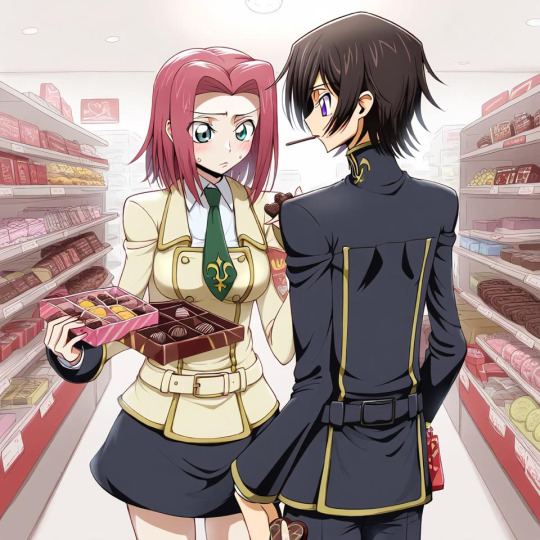
Happy Valentines Day! Long live Kalulu!
#kallen stadtfeld#kallen kozuki#code geass#lelouch#lelouch lamperouge#lelouch vi britannia#lelouch x kallen#kallen#code geass: lelouch of the rebellion#code geass: hangyaku no lelouch#kalulu#lulukare
23 notes
·
View notes
Text
My interpretation of this fragment of the opening "World End": the ideological confrontation between Schneizel, Charles and Lelouch

This fragment is my favorite part of the fifth opening of Code Geass, "World End", performed by FLOW. After having thoroughly analyzed the series, I think I finally understand the meaning of these shots.
Considering that the openings of an anime are in relation to the ongoing events of the same, I'm sure that this set of shots makes a direct allusion to the clash of perspectives of Charles, Schneizel and Lelouch that will manifest in the two deeply ideological confrontations that occur in the finale: in the Sword of Akasha with Charles in episode 21 and the battle for control of the world with Schneizel in the remaining episodes. What is at issue here? Human nature, as it couldn't be otherwise. I explain…
Both Charles and Schneizel feel enormous contempt for the human race for different reasons.
For Charles's part, he believes that men are liars. His philosophy is based on the fact that the suffering of the world comes from lies and, for this reason, his plan is to destroy the Collective Unconscious, which is a collection of masks and characters that people use in front of others, to eliminate the anyone's ability to pretend to others and, therefore, force people to be themselves. The problem with this plan is that Charles would be altering human nature, since, as Lelouch says in their discussion, lies are part of human beings. So would be suppressing free will.
On Schneizel's side, thinks men want to be controlled and it is for that reason that he creates the Damocles, this floating fortress armed with F.L.E.I.J.A warheads, to force peace. However, it wouldn't be a true peace, in reality it would be a form of control through fear, because, basically, the Damocles would be like a gun at the back of everyone's head: "obey me or suffer the consequences." In certain way, Schneizel's plan also nullifies free will.
Hence Charles and Schneizel and the world where they stand are painted in two colors. They both have a very petty, Manichean view of human beings. "Men are bad and only I, who am good, know what is best for them."
And then Zero/Lelouch appears, emerging as the champion of humanity. Lelouch's entire plan, in fact, is based on the will of human beings because, technically, the Zero Requiem doesn't bring peace, but rather clears the way for peace to be the easiest and most convenient option for everyone, does it? And how do he do it? Unifying all powers through hatred towards a common enemy, disarming said powers by making them ally with the United Nations Federation and unleashing a war so fierce that it would push everyone to their limit to the point of attrition.
It's at this point where the subnormal on duty comes in to say: "and why didn't Lelouch stay as emperor of the world, if he was the most intelligent and the most capable? Ha, ha, ha! How stupid." Because that is the core of his narrative arc and the beautiful reflection that Code Geass leaves at the end, Larry. If Lelouch used his powers (both the politician and the Geass) to strip the world of all its means to fight and take it hostage, how was he different from the villains?
Precisely, the world could have entered another war and Lelouch's sacrifice could have been in vain. However, Lelouch had full confidence that people would choose peace because, as he explains to his brother in the battle for control of the world, people continually and actively seek happiness.
Lelouch understood that peace couldn't be imposed, even with the best of intentions. Not just because the world couldn't progress like that, but because that wasn't the way to address the problem.
The route Lelouch took was the only one that addressed the root of the problem. He understood that the world had fallen to a state where fighting one's neighbor was the immediate response to disputes. Even if Lelouch took away their weapons, as long as there was a reason to fight, people would do it.
Lelouch knew this, so he took away that reason by becoming a greater evil than all that came before him and by removing them from the equation, he could set the world on the path to recovery. Conflicts would still occur, yes, that is inevitable; but the world would have the opportunity to make changes to ensure that is the last resort. Instead of forcing the world to change, Lelouch would give their political landscape a factory reset and make the world want to change itself.
Lelouch understood that human beings are quite complex and that they value willpower. For that reason, he relinquishes control and leaves the decision to do what they want with the world in the hands of people. Lelouch surely thought that within a few years a war could happen. He wasn't so idealistic. He knew that the Zero Requiem and hope were no guarantee of eternal peace. But Lelouch had faith that the people left behind (Zerozaku, Kallen, Cornelia, Nunnally, Ohgi…) would do everything they could to make things better. And, therefore, various colors illuminate where Zero is standing. The people aren't white or black, they aren't red or blue, not even gray, they are of various colors, which seems to me to be a symbolic sample of the optimistic approach of the anime and which also serves as a nice reminder of the first Code Geass opening: "Colors".
That's what Code Geass is about, Julia. Recognize and admire the power of the will. Beautiful, if you ask me.
#code geass: hangyaku no lelouch#lelouch lamperouge#code geass: lelouch of the rebellion#code geass#lelouch vi britannia#lelouch
26 notes
·
View notes
Text
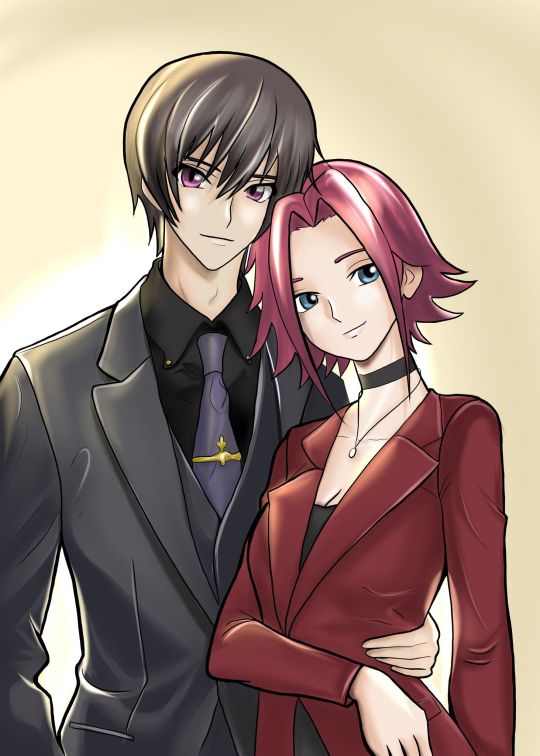
This beautiful drawing was a gift from a dear friend and a reader of my fanfic, @kireikoami. I think it's a great way to celebrate that today I finally finished writing my Code Geass fanfic. Code Geass: Bloodlines.
It took me tears, sweat, blood and several headaches, but I did it! You cannot have the slightest idea of the immense satisfaction I felt when I wrote the word "end." Not even I can describe it. It's an extraordinary feeling that can't be compared to anything (well, I like to compare the creative process with labor, although I think that the creative process is more enjoyable despite everything; I don't know, I'm not a mother). Some authors don't like to use that word. I suppose because it will seem childish to them or the story of the characters doesn't conclude after the final point. I do it more than anything because of the meaning it carries for me. It's the end of a project that I have spent several years of my life working on with love and dedication. It's my farewell to some characters that I became attached to after giving them a fair ending. It's my break and theirs.
I must say that I cried a couple of times writing the ending and if I start to remember the final scene, I would start crying (I was already crying when I wasn't writing it yet, because I knew it was going to move me at the time). I suppose it will be inevitable that I will cry again when it is time to edit the epilogue to publish it. So it's not the "final goodbye" for now, it's the "see you soon."
I loved writing to Lelouch and accompanying him on his journey. I trust that I won't disappoint readers or the source material. They will read it in a few months and tell me about it. The fanfic has a total of 45 chapters, including the epilogue, and I have uploaded chapter 39 so far. With this, I'll be able to be more constant with updates.
I'm a little sad that I can't continue updating the English version of my work, but I wasn't the one who translated it. It was my friend who since she started her new job months ago she doesn't even have time to talk to me for a few minutes about the weather. A shame.
Now that I've freed up a bit, I hope to bring back this week an analysis that I wanted to do. Expect it soon.
#kallen kozuki#kallen stadtfeld#code geass#lelouch#lelouch vi britannia#lelouch lamperouge#code geass bloodlines#kalulu#lelouch x kallen#kallen x lelouch
22 notes
·
View notes
Text
I’m now looking at this drawing and I’m amazed at how well it conveys everything that I wanted to convey and even more, while half of the things were done unconsciously.
Firstly, I was looking for a reference specifically for Lancelot and Guinevere, and I was lucky)


But then some kind of magic happened, because at first I wanted to draw just a romantic picture. I was lucky with the pose; he hugs her and protects her with a sword. It so happens that she holds her hand on the award that she presented to him, and this symbol is located precisely in the area of the heart, which leads not only to romantic references, but also to the direct phrase “lady of the heart”, which in Russian meaning means the lady whom the knight chose his “muse” to whom he dedicated his exploits.
The dark cloak can be associated with Zero, who surrounds them and from whom they cannot escape, but I don’t really like this association. When you look at his face, the effect is as if he is crying (which is not far from the canon), the bokeh light effect is often used when depicting dying or disappearing (which is not far from the canon). Behind them there is a glow and sparks, as if everything around is on fire (which is not far from the canon, but looks better than a sea of blood) hey, just notised there is a big fire in the reference, which means that this is an illustration for the legend where he saves her from being burned, I’m a little not attentive x))
So I'm very happy with the result.
And if you haven’t watched this anime yet, but are planning to, then sorry for the spoilers))
#suzaku x euphemia#euphemia li britannia#suzaku kururugi#code geass#code geass: hangyaku no lelouch#code geass: lelouch of the rebellion
82 notes
·
View notes
Text
5 reasons why Kagino doesn't work (and 3 reasons why Kalulu does)
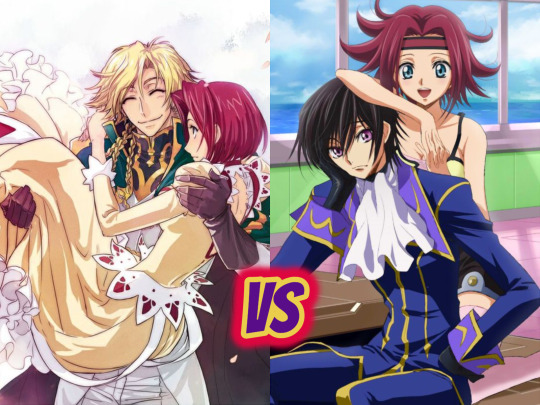
I was planning to prepare the small analysis of the final scene of the last episode of the first season, but, given the latest events that have occurred on my other Code Geass page, I decided to postpone it and work on a publication that I had planned for the future: explaining why Kagino is the most forced ship in Code Geass, besides Lelouch and CC in the infamous movie Lelouch of the Aberration (you will know it as Lelouch of the Resurrection). Also why Kagino is one of the worst ships in Code Geass. Please note that I use the term ship because this is a fandom pairing. Gino was never a love interest for Kallen and vice versa, according to official material (including the series).

1.It's a forced ship. This ship was invented by the Newtype magazine, which was ProCluClu, after they tried to do the same with Xingke and the ship had no support. What is the need to promote this ship? Kallen was becoming too close to Lelouch for the liking of CluClu fans, so it had to get her rival out of the way, and what better way for her heart to have an owner other than Lelouch? Actually, there could be other ways, but even the CluClu shippers saw the chemistry and sexual tension between Lelouch and Kallen. She was a threat, from their point of view. I have emphasized this because ""coincidentally"" the CluClu shippers are the only ones who pair Kallen with Gino (yes, I'm seeing that they are realizing that they are losing credibility due to their bias, so they are trying to hide what they are pretending they are Shirlulu or Kalulu shippers; they clearly don't understand what they are doing wrong, right?). The other 0.0002% are people who ship them because they believe that CluClu is canon and Kallen is alone and deserves someone to take care of her heart, but, as Miley Cyrus said in her powerful song, Kallen can buy herself flowers, ask herself to dance, telling herself things that only she understands, holding her own hand and loving herself and being happy.
Kallen is a romantic interest of Lelouch. You can see their relationship develop and take on a romantic nature as the episodes go by in R2. There is a narrative construction. Unfortunately, I won't be able to track their relationship here since that requires a separate analysis.
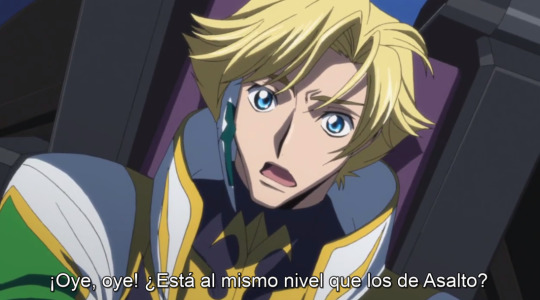
2. The "other reasons" that accompany this ship are superficial. The ship background that I expressed above is the real reason. There are no other compelling reasons to pair Kallen and Gino apart from the fact that they are both handsome, the same age, they exchanged a few words, and they are Knightmares pilots. Still, for CluClu shippers, those reasons are enough to prove that they are "soulmates." It's complete nonsense. You have work colleagues or study partners and your mother or your friends or your teacher or your boss aren't matching you with any of them, right? Furthermore, Suzaku also meets these requirements and no one is pairing him with Kallen (for the record, I find this ship interesting; but I don't think it works in the context of the series either).
My point is that just because two people are contemporary, attractive and (more or less) doing the same job doesn't mean that they are each other's ideal partner or that love will arise between them. Love is a spontaneous and free thing, which brings me to my next point…
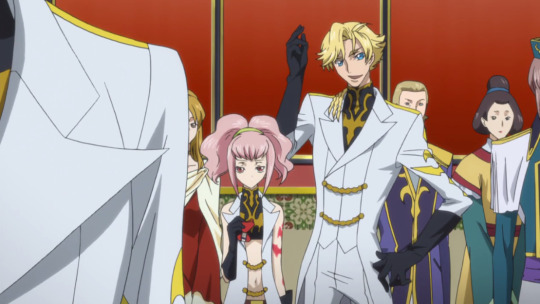
3. Gino and Kallen have no romantic attraction for each other or sexual tension. The biggest "evidence" there is in favor of this ship and surely what started this nonsense was a comment Gino makes in episode 9. But, far from demonstrating a romantic interest or sexual attraction for Kallen, it shows that the fandom has problems of reading comprehension. Let's see, read the comment:
"Anya: This is the ace of the Black Knights. The pilot of the Guren.
Gino: Yes, the one from before. She is much prettier than the wanted poster of her. "That's my kind of woman!"
What does this tell us? 1. That Gino recognizes that Kallen is pretty. 2. That the type of women Gino is attracted to are pretty. There is a big difference between "I like women like you" and "I like you." Just because you appreciate a person's beauty doesn't automatically mean that you like him, that is orthodox and childish thinking (this makes me think of men with fragile masculinity who refuse to admit that another man seems handsome to them because they think they would look like homosexuals and they have been made to believe that masculinity and homosexuality don't go together). Even more important is Kallen's reaction, when he makes the comment: she just turns away. She doesn't smile or blush. Zero interest.
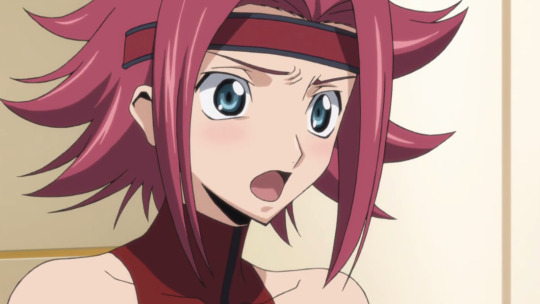
This is very different from what happens between Lelouch and Kallen. She does react to Lelouch's comments, no matter how minor they may be. Like this double entender in episode 5.
"Kallen: Are you talking like Zero or Lelouch right now?
Lelouch: It's not like everyone knows about our relationship, right?
Kallen * blushes *: Stop saying weird things like that, okay?"

Just a few days ago I read a phrase on Twitter (or X) that said that the moment preceding the kiss was even more valuable than the kiss itself. That's where you find the so-called sexual tension and Lelouch and Kallen had two moments like that. Three, if you want to tell the dialogue that preceded the kiss in episode 22. I will go into more detail about the kiss and the two almost kisses of Lelouch and Kallen the day I'm going to talk about those things from theory. In fact, I don't want to stop to examine the romantic relationship between Lelouch and Kallen like I said.

Gino and Kallen never flirted or had intimate moments. At most, they only poked each other in the last Picture Drama, but it was a display of friendly rivalry. No other thing. Pretending that that never happened, there is one moment in particular that I want us to review, as I consider it crucial to explain why this ship doesn't work:

4. Gino didn't accept Kallen because of who she is. At some point in episode 17, Gino is looking for Suzaku and went to visit Kallen in her cell believing he was there. Instead of leaving, he shows her the photo album he was originally going to show Suzaku and they start talking about him (did I tell you that it makes more sense that Gino would be more romantically interested in Suzaku than in Kallen? I'll tell you again, so). The conversation changes and Gino starts talking about Kallen.
"Gino: I understand that you are half Britannian and half Japanese, right? If you chose the name Stadtfeld instead of Kouzuki, you could have a good life, right? Even become one of the Knights of the Round if you have such ambitions.
Kallen: Is this going anywhere?
Gino: What I mean is, wouldn't you like to come back to us, Kallen?"
What is wrong here? That Gino doesn't understand nor is interested in understanding why Kallen chose to embrace the cause of the Japanese and the Black Knights. Instead, Gino brazenly advises her to abandon everything and join them since life is much more comfortable fighting on Britannia's side (this is the kind of flippant comment that comes from the mouth of a person who is in a position of privilege, if you ask me).
Gino doesn't realize that Kallen's motivations for fighting are tied to her principles and ideals. Therefore, this is like asking Kallen to give up who she is: an ally of justice, a patriotic woman, and a defender of freedom. This reflects a clear disinterest on Gino's part and this is a problem because you can't love someone without knowing them and accepting them for who they are.

This is in stark contrast to Lelouch. While Gino asks Kallen to turn her back on her beliefs, her values, and the people she cares about (the Japanese and her family), Lelouch prefers to push Kallen away from him rather than force her to give up her principles and her life for him because, for Lelouch, Kallen's well-being and integrity are much more important than being together. This is the true definition of love.

5. Gino and Kallen don't share principles. A couple doesn't have to be two conjoined twins. They may have different tastes, ways of thinking, preferences, interests, hobbies… If they truly love each other, they will learn to adapt to each other because one doesn't really change who they are for another person. But a couple needs to have, at least, the same values, ideals and life plans (I would add, also certain beliefs). Otherwise, it will be difficult for this relationship to prosper.
Gino is a Knight of the Round and has been an active collaborator in the conquest and colonization of independent nations. He clearly agrees with Britannia's expansionist policy. He has no problem with imperialism or colonialism. Kallen, on the other hand, belongs to the largest insurgent group fighting against Britannia and fighting in the name of freedom, justice and equality. She detests colonialism and imperialism due to her own experience, so she disagrees with expansionism. These discrepancies would prevent Gino and Kallen from having anything (that is, they wouldn't even have been friends).
Only Gino showed some empathy with Kallen, when Lelouch killed the Emperor and usurped the throne, claiming that he finally understood what it feels like to have another come to take power illegitimately and arbitrarily. However, a coup d'état is not the same as colonialism and, of course, this doesn't mean that Gino will change his principles. Only he's going to have a just reason to fight (finally). It would have been better if Gino had apologized to Kallen, but that was an act that required a great deal of effort.
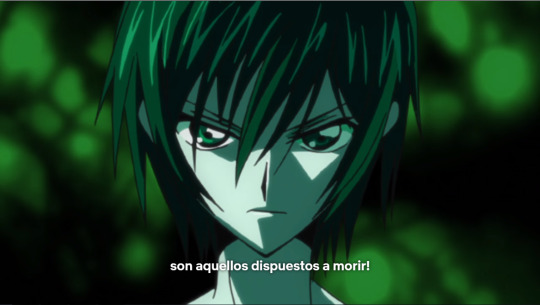
Lelouch, for his part, is a rebel at heart like Kallen. He may have lied about many things, but he genuinely believes in the ideals that he has preached as Zero and Kallen welcomed them as her own because they fit her values, which are no different from Lelouch's. It's not a coincidence. There is a small parallel between the dramatic situation of the Japanese and that of Lelouch and Nunnally. They were all dispossessed of what they had, including their identity, and forced to live as strangers in their land. Therefore, Lelouch and Kallen are more compatible. Even if they hadn't met in Shijunku, sooner or later their paths would cross over their hatred of Britannia, their contempt for the empire's Social Darwinist ideology, and their desire to change the world (well, this desire would germinate in Kallen once she met to Lelouch who, in turn, would obtain it as soon as he received the Geass).
The same can be said about Lelouch's other ships, by the way. Shirley wants to be a loving wife and have a happy family, CC wants to die (at the end of the series, she is focused on living every small moment of her life to the fullest just like Jamie Foxx's character in Soul) and Suzaku wants to change.the system from within. I won't enter the swampy terrain of reviewing the ideals and values of these characters. It's not my goal.
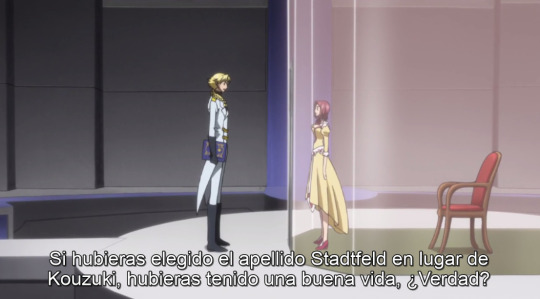
In conclusion, Gino and Kallen don't stick with glue or tape. Lelouch is emerging as a more worthy suitor, despite everything. And, therefore, Karen-chan only has eyes for him. Kalulu is better.
PS: of course, a fanfic could correct all of these things. But I don't think it even exists and I'm focusing only on the series, too.
#why kalulu is the best ship#kallen kozuki#kallen stadtfeld#lelouch#lelouch vi britannia#lelouch lamperouge#kallen#lelouch x kallen#kalulu#kagino#code geass: hangyaku no lelouch#code geass: lelouch of the rebellion#code geass#gino weinberg#gino x kallen#kallen x gino#kallen x lelouch#lulukare
16 notes
·
View notes